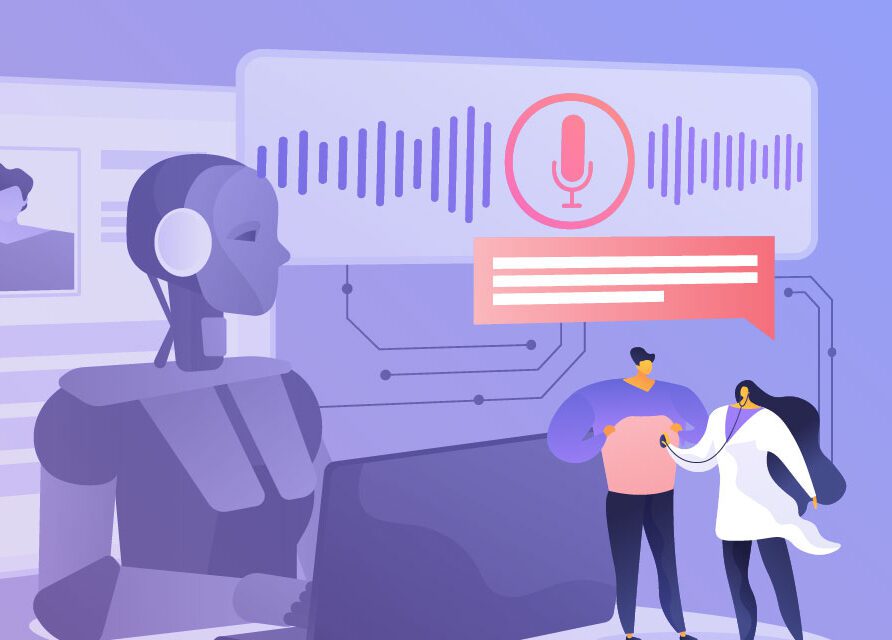Article
AI in the NHS: Hype, hope and how we make it work
Artificial intelligence is no longer a futuristic concept. It’s here, it’s evolving fast and it’s reshaping healthcare in real time.
With NHS England’s newly updated guidance on the use of AI-enabled ambient scribing products in health and care settings,[1] the focus is tightening on what this technology can really deliver. This guidance is helping set the direction of travel for digital health leaders, calling for systems that not only harness AI’s potential, but to do so responsibly, transparently and with patient safety at the centre.
At Altera Digital Health, we’ve been reflecting on what this means in practice: How AI is already changing NHS care delivery, and what it will take to truly unlock its potential.
Beyond the buzz: How big a deal is AI?
There’s no shortage of headlines proclaiming AI’s transformative power, but even within that noise, some statements land with weight. Google CEO Sundar Pichai recently claimed AI will have a “more profound impact on humanity than fire, electricity or the internet.”
It’s a bold statement, but one that reflects the sheer scale of possibility we’re dealing with. In healthcare, the implications are equally vast. So where do we begin?
AI answers itself
To start answering the question, “What will the impact of AI be on NHS care delivery?” I turned to AI itself, ChatGPT. What came back were sensible, well-informed insights. It listed potential gains in radiology, pathology, operational efficiency, administrative automation and clinical decision support. It even flagged the risks: bias, data privacy concerns, over-reliance and ethical challenges.
One thing missing for me though was the adoption and evolution of precision medicine. How do we use AI to treat the individual and remove the endless cycles of trial-and-error that are so often sources of frustration for clinicians, but also detrimental to the patient?
Here’s the thing: ChatGPT isn’t thinking for itself. It’s synthesising the best of what’s already out there. So how do we distinguish what’s truly valuable for the NHS and what’s just hype?
The NHS AI Lab and the direction of travel
Fortunately, the NHS is not standing still. Since launching the AI Lab in 2019, the NHS has invested over £113M into 80+ AI-driven innovations, from antimicrobial stewardship tools to AI-supported triage for dermatology and ADHD diagnosis.
There are many guides with practical guidance for deploying AI safely: How to buy it, implement it, validate it and govern it effectively. The MHRA is also continually updating its guidance on AI as a medical device, helping ensure systems are safe, regulated and patient-focused.
These efforts are helping build the trust and structure we need to move from pilots and proofs of concept to real, sustainable AI adoption.
Starting small, thinking big
The future of AI in healthcare doesn’t start with the most high-stakes interventions, it begins with low-risk, high-impact use cases that reduce pressure on staff and improve patient experiences. Think:
- Chatbots to help staff find internal policies or CPD content.
- Tools to guide patients to the right car park or outpatient area.
- Assistive tech to streamline scheduling, documentation and communication.
These uses may not be glamorous, but they unlock time, reduce admin burden and start building digital confidence across teams.
The future of AI in healthcare doesn’t start with the most high-stakes interventions, it begins with low-risk, high-impact use cases that reduce pressure on staff and improve patient experiences.
Where Altera fits in
At Altera, we’ve embraced the AI revolution and we are already seeing the benefits it is bringing to some of our NHS clients. We’ve created an internal AI leadership group and are investing in responsible innovation across our solutions. Our focus is clear:
- Build trust by embedding AI within the clinical workflow, not bolting it on.
- Work closely with clinicians from day one to co-design meaningful solutions.
- Target both near-term wins (like ambient documentation tools) and long-term breakthroughs (like precision medicine integration).
We understand that AI adoption isn’t just technical, it’s cultural. That’s why we believe deeply in clinician-led development and phased innovation.
High stakes, high standards
When it comes to high-risk applications, like diagnostics, imaging and clinical decision support, we tread carefully. Our approach is grounded in validation, pilot programmes and regulatory alignment with NICE and MHRA standards. And we’re building in transparency, explainability and bias mitigation at every stage.
Because if AI is going to assist with life-or-death decisions, it needs to be reliable, auditable and equitable.
A vision for the future
We believe AI’s impact on NHS care delivery should be measured in meaningful outcomes:
- Lowering the administrative burden.
- Supporting better clinical decisions.
- Focusing on treating the individual with precision medicine.
- Ensuring populations stay healthy.
Altera is investing in EPR-native AI capabilities, with a focus on ambient listening and workflow-aware automation. Our aim? To ensure every healthcare professional, from administrators to clinicians, feels AI works with them, not around them.
AI will change healthcare. It’s up to all of us to ensure it does so safely, ethically and meaningfully.
At Altera, we’re proud to stand alongside the NHS as a partner not just in digital transformation, but in shaping an AI future that truly serves patients and the people who care for them.
[1] https://www.england.nhs.uk/publication/guidance-on-the-use-of-ai-enabled-ambient-scribing-products/












